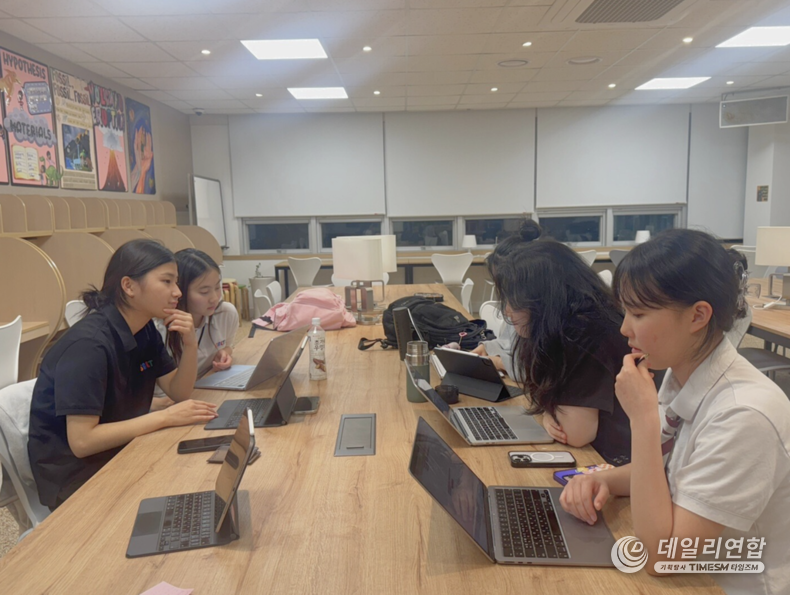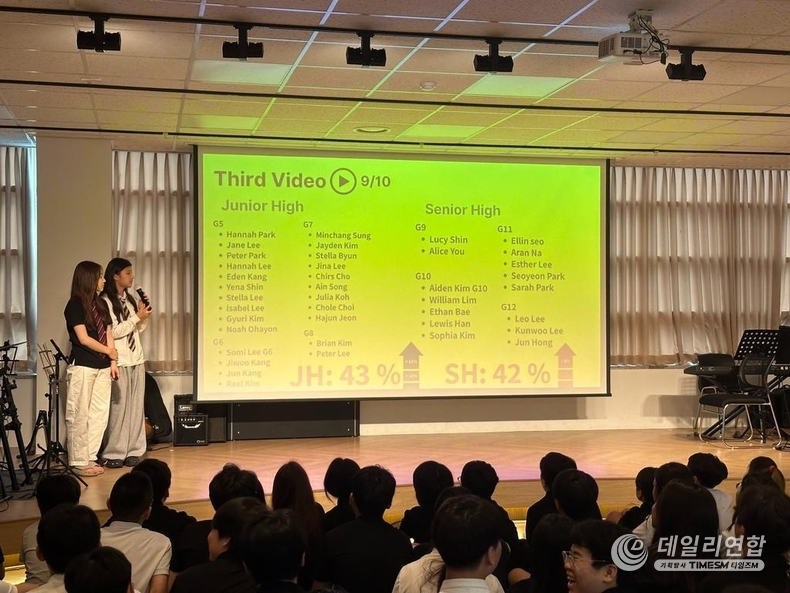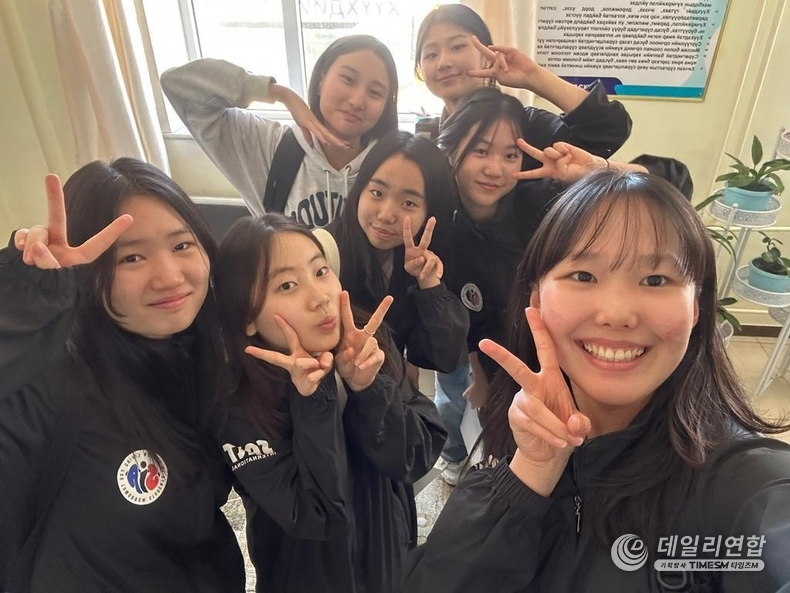By Seoyeon Park, Student Reporter (SNSJTV / Daily Union) | ESG, an essential element of sustainable management, has become a key element worldwide. However, in Korea, it's still largely perceived as a corporate 'sustainability report', or a government-led initiative. Despite increased public awareness, many domestic ESG efforts remain superficial, aimed at improving the company's image, rather than producing meaningful ESG performance.
In contrast, global ESG activity is already central to determining both investment and corporate value. Institutional investors now consider non-financial practices, such as ESG performance, to be an essential part of company evaluation. In this climate, polished ESG reports are no longer enough; verifiable ESG performance is demanded.
The ACTizen team from SALT International School has drawn attention by translating abstract concepts into practical, daily ESG performance. Their project offers a blueprint for how ESG can be both practiced and measured.

The team’s early steps were far from smooth. Members struggled to move from ideas to ESG activity. They generated various ideas, including ESG checklists, but failed to capture interest or generate usable data. Through trial and error, they gradually discovered more effective methods.

In the Environmental (E) category, the ACTizens launched a 'Zero Food Waste' challenge. They tracked lunch waste daily, recording clean trays and publishing results. This approach went beyond a symbolic ESG activity; it produced measurable data. Participation in the campaign increased by more than 40% among middle and high school students.
For the Social (S) category, the team replaced routine fire drills with an engaging video they produced themselves, complete with a quiz to reinforce learning. Under Governance (G), they designed and distributed satisfaction surveys after student council events, creating more democratic ESG activities that increased transparency and participation in school operations.
This process culminated in the 'ESG Practice Guidebook'. Backed by data, the guide was shared with other schools, establishing ACTizen as a model for successful youth-led ESG performance. Seeking to expand their reach, ACTizens traveled to Mongolia earlier this year, where they built connections with local students. One Mongolian peer joined the team, strengthening its international scope.

Yet, challenges emerged. Korea and Mongolia faced very different environmental realities. To solve this, ACTizens organized video calls with their teammate to design an ESG activity adapted to local conditions. In Mongolia, where 76.9% of the land suffers from desertification, the guidebook was restructured into an ‘Environmental Guidebook’ that addressed these urgent issues. The team also collaborated on a social awareness campaign against bullying, a major concern in Mongolian schools.
ACTizen’s vision now extends beyond their school. "We want to propose ESG activity plans to global leaders that go beyond what is expected from youth," the team explained. "We aren't waiting for the future. ESG is our present. Our message is clear: Act Now, And Change Tomorrow."
*This article was directly reported on and written by student journalist Park Seoyeon during her journalist training.









